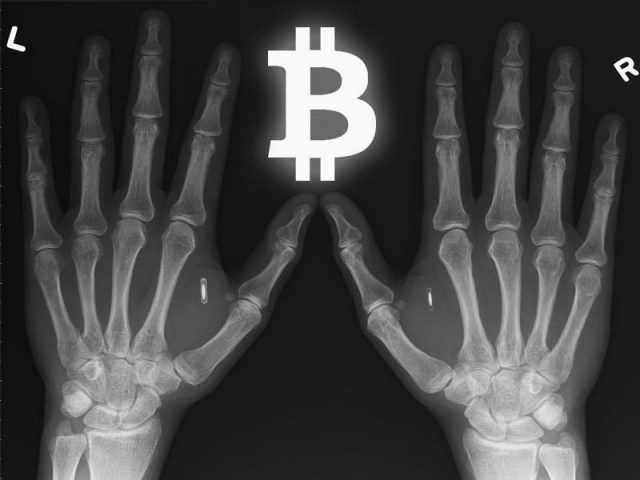Making a bitcoin payment with a body part may not be too unusual in the future.
At this year’s Black Sea Summit in Kiev, an NFC, bio-implantable chip was demonstrated to attendees. The presentation of the Dangerous things xNT Implant showed how the product can store bitcoin keys and credit card data.
Dangerous Things xNT Implant
When implanted under a person’s skin, the chip can facilitate a number of NFC financial transactions, including bitcoin payments.
The company has started an Indiegogo campaign to fund their project. So far, the team has raised over $30,000 USD, breaking their targeted goal of $8,000.
At a price of $99, the bio-chip comes contained in a cylindrical biocompatible glass — stored in a syringe ready for injection. Developers claim the xNT Implant is the first NFC-compliant, implantable RFID tag on the market. When a user wants to pay for an item, they scan the body part holding the device over any NFC-enabled point-of-sale application.
The xNT tag comes with its own beta Android app that features upcoming releases to the platform. The bio-chip assembly kit is EO gas-sterilized, and ships with an installation guide to help local body piercing professionals or medical practitioners inject the device.
The Seattle-based founders of Dangerous Things, Amal Graafstra and Dana Burnidge, are cyborg fans, and hope bio-hacking becomes mainstream in the near future.
Bitcoin-Based, Bio-Implantable Chips Have Been Around for a While
Over the past couple of years, several Bitcoin supporters have demonstrated bio-chip proof-of-concepts loaded with cryptocurrency.
For instance, back in June, a news report detailed the story of Meow-Ludo, founder of Biofoundry. Meow-Ludo integrated bitcoin keys and credit card information into an NFC chip implanted in his thumb, which held 868 bytes of data.
In 2014, Dutch entrepreneur Martijn Wismeijer made headlines after he implanted two bitcoin wallets in each of his hands. The NFC Type 2 compliant chipsets contained 880 bytes of data. Wismeijer told press that one hand was for cold storage, the other a hot wallet for purchases.


